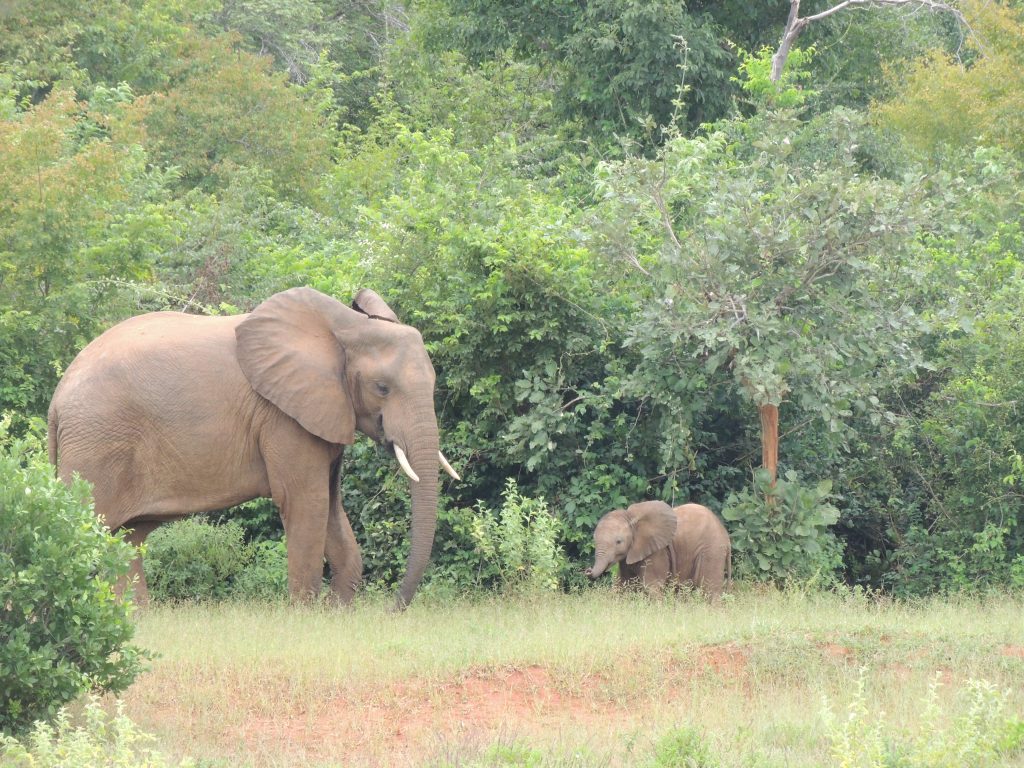
The International Elephant Foundation (IEF) is proud to award more than $700,000 to 27 elephant conservation and research projects that support elephant conservation around the world, adding to the over $6 million total invested in conserving elephants since its inception in 1998.
The IEF is a non-profit 501(c)3 corporation of individuals and institutions, including San Antonio Zoo, dedicated to the conservation of African and Asian Elephants worldwide. Founded in 1998 and incorporated in 1999, IEF is an organization working diligently and successfully for the conservation of elephants.
“It’s IEF’s mission to support and operate elephant conservation and education programs, both in managed facilities and in the wild, with an emphasis on management, protection, and scientific research,” said Deborah Olson, Executive Director, International Elephant Foundation. “These conservation and research grants are more important than ever during the COVID pandemic. Stay at home orders across the globe have affected the ability of conservationists to protect animals in wild places. We will continue to support field conservation, field research, habitat protection, conservation education, professional training, technology transfer, capacity building, and zoo research.“
“For the seventh consecutive year, Conservation Lower Zambezi (CLZ) working with DNPW in Zambia has been supported by IEF. In 2020, CLZ is grateful to be administered grants from IEF to support our critical law enforcement patrols, environmental education outreach, and ongoing research as well as an expansion of the existing Dog Unit,” said Nikita Iyengar, Conservation Lower Zambezi. IEF will support two projects that support wildlife protection efforts in the Lower Zambezi National Park and the expansion of the DNPW/CLZ detection and tracking dog unit to provide additional law enforcement support to elephants and other wildlife in the Lower Zambezi.
“The IEF fund will be absolutely valuable in bringing awareness to the school children and the community who live near elephant habitats,” said Rengasamy Marimuthu from Zoo Outreach Organization. “The need for coexistence with the gentle giants is the only possibility through diverse teaching modules in Tamil Nadu, India.” IEF will support their project, Human-Elephant Coexistence HECx : Advocating through awareness programs in Tamil Nadu.
“Elephants-Human Relations Aid (EHRA) is very grateful to the IEF for the generous grant we have received for our PEACE Project. This grant is a big step in our fundraising efforts and is a true reflection of the global support of this program. With the IEF’s support, we are able to fund the development of our Elephant Guard initiative, of which the primary function is to help combat elephant-human conflict through ongoing community outreach and education. This initiative is a critical piece of EHRA’s conservation efforts that ensure the protection of local communities and Namibia’s free-roaming desert-adapted elephants,” said Rachel Harris, Elephants-Human Relations Aid.
IEF’s projects continue to change the lives of elephants, other wildlife, and hundreds of thousands of people who share the landscape with elephants. Those who donate to the IEF can rest assured that your money is going to support one of our many elephant conservation and research projects as listed.
IEF congratulates the 2020 Conservation and Research Grant recipients:
Adopting effective approaches to mitigate human-wildlife conflict in the South Katavi Ecosystem – Katavi National Park and Mpimbwe Wildlife Management area – Tanzania, Africa
Behavior-based human-elephant conflict mitigation: combining tactical and homemade strategies – Communities neighboring the Nkala Game Management Area near Kafue National Park – Zambia, Africa
Big Tusker Project
The Tsavo Conservation Area – Kenya, Africa
Conservation of elephants in key areas of Murchison Falls Conservation Area – Uganda, Africa
Elephant deterrent effectiveness in light of ecological and agricultural variation – Kenya, Africa
Elephant utilization of the Kaifeng-Zambezi Wildlife Corridor of KAZA TFCA – Zambia, Africa
Enabling human-elephant co-existence through applied research and stakeholder engagement – Botswana, Africa
Expansion of the DNPW/CLZ detection and tracking dog unit to provide additional law enforcement support to elephants and other wildlife in the Lower Zambezi – Zambia, Africa
Mount Kenya Horse Patrol Team – Kenya, Africa
PEACE (People and Elephants Amicably Co-Existing) conflict mitigation program – Namibia, Africa
Support of the Anti-Poaching Teams 9-1 & 9-2 of Northern Rangelands Trust Conservancies – Kenya, Africa
Support to wildlife protection efforts in the Lower Zambezi National Park – Zambia, Africa
Sustaining local support for elephant conservation near Ruaha, Tanzania – Tanzania, Africa
The effect of community workshops and elephant movements on human-elephant conflict – Kenya, Africa
Using social network analysis to achieve faster conservation education outcomes – Uganda, Africa
Community-based human-elephant conflict mitigation in Pumat National Park – Vietnam, Asia
Community-Based Protection of Sumatran Elephant Populations and Habitat in northern Sumatra through Conservation Response Units – Indonesia, Asia
Demand reduction-Expand outreach to Chinese travelers – China, Asia
Elephant Response Units in Way Kambas National Park in Sumatra – Indonesia, Asia
Elephant Response Units in Seblat Forest in Sumatra – Indonesia, Asia
Human-elephant conflict mitigation through community-managed Tongis in fringe of Kaziranga National Park – India, Asia
Human-Elephant Coexistence HECx : Advocating through awareness programs in Tamil Nadu – India, Asia
Mobilizing Community Forest User Groups for the Elephant Habitat Restoration – Nepal, Asia
Strengthen Human-Elephant Co-existence in Nepal – Nepal, Asia
Detection of elephant endotheliotropic herpesvirus 1A DNA using in situ hybridization – Ex-Situ Conservation
Elephant Endotheliotropic Herpesvirus Genomics and Pathogenesis – Ex-Situ Conservation
Realization of an Effective Vaccine Against Elephant Endotheliotropic Herpesvirus – Ex-Situ Conservation
About International Elephant Foundation
The International Elephant Foundation (IEF) is a non-profit 501(c)3 corporation of individuals and institutions dedicated to the conservation of African and Asian Elephants worldwideIEF creates a sustainable future for elephants. It generates and effectively invests resources to support elephant conservation, education, research, and management programs worldwide. Through its passion, expertise, knowledge, and partnerships IEF inspires and engages people to ensure a vibrant future with elephants everywhere.
Cover Photo Credit San Antonio Zoo



